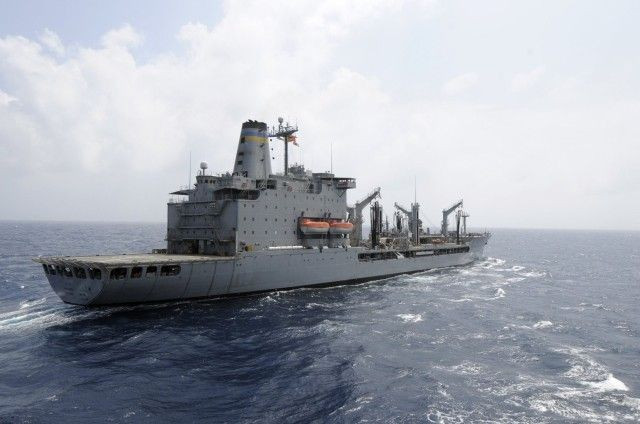North Korea, Iran, And America: The Strange Bedfellows Against The Law Of The Sea Treaty

Countries that have refused to become participants to the United Nations Convention on the Law of the Sea (UNCLOS) include landlocked nations such as Afghanistan, Bhutan, Rwanda, and all the former Soviet republics of Central Asia. Also on the list are such international legal luminaries as Iran, Venezuela, Libya, and North Korea.
But those are not the biggest names in the group. That would be none other than the international maritime policeman and biggest naval power in history: the United States of America.
That seems odd company to keep, considering U.S. presidents have been chiding those countries for decades because of their flouting of international law and insensitivity for the rest of the international community.
On Monday, partisan politicking in the U.S. Senate brought the number of the treaty's opponents to 34 Republicans, essentially defeating current efforts for ratification. Approval would need 67 votes, a two-thirds majority. Among those who announced their opposition, in a letter dated July 16, are Senators Kelly Ayotte and Rob Portman, both considered among the more likely choices by Mitt Romney for a vice presidential candidate.
162 other countries have signed and ratified UNCLOS, which provides guidelines on recognizing exclusive economic zones (the 200-nautical mile limit where a country has sole exploitation rights over natural resources) and sets limits to territorial and internal waters.
In an era when maritime disputes, often due to rivarly over natural resource exploration and ownership, are becoming a catalyst of diplomatic tensions and foreign policy crises, the American decision to opt out of an agreement recognized by all but the world's most shunned nations seems highly confusing.
Continuing clashes in Asia over islands have all too often highlighted how sovereignty disputes concerning maritime space have become the leading cause of regional tensions. Analysts warn that at a time when the U.S.' strategic intention is to pivot to the Asia-Pacific, being the only permanent member of the UN security council member not to have become party to the treaty is an additional handicap in efforts to play international mediator.
But even in America's own backyard, failure to ratify UNCLOS has created disadvantages. In Arctic Ocean disputes, nations such as Canada, Norway, and Denmark are not only squabbling with one another, but also feeling pressure from Russia over claims to the area's rich untapped hydrocarbons. The U.S. meanwhile often finds itself left out of key multiparty negotiations. Moreover, Washington's failure to accede to the treaty has irked Canada, which has long maintained close defense cooperation in the Arctic with the U.S.
No surprise then, that the Pentagon has long asked for ratification. (International treaties must receive a yes vote in the Senate for the U.S. to become a party to them.)
Defense Secretary Leon Panetta and Secretary of State Hillary Clinton spoke to the Senate Foreign Relations Committee in May, pushing for the U.S. enter into the treaty. Not being a party of UNCLOS puts us at a distinct disadvantage when it comes to disputes over maritime rights, said Panetta. Clinton argued that the treaty would allow oil and gas companies greater freedom in exploring resources in the deeper parts of the continental shelf.
Although many leaders of the defense and foreign policy community are urging Congress to change its current stance, Committee Chairman John Kerry, a Democrat who has championed the ratification, is finding it difficult to make any gains on convincing others, especially in an election year.
Not heeding the recommendations of the Pentagon or the State Department, Ayotte and Portman disputed in their jointly-signed letter to Senate majority leader Harry Reid the very legal foundation of an agreement signed by pretty much everybody who's anybody in the world. They also repeated a longstanding conservative argument: America can adequately defend its own interests, and submitting to international agreements would only infringe upon those interests.
No international organization owns the seas, and we are confident that our country will continue to protect its navigational freedom, valid territorial claims, and other maritime rights ... we believe the treaty's litigation exposure and impositions on U.S. sovereignty outweigh its potential benefits, said the Ayotte-Portman letter.
But in fact, in terms of actual maritime practice, the U.S. has largely followed the rules of the treaty since the Reagan era, even though it has failed to officially ratify it. Indeed, the U.S. first helped to formulate the original Convention on the law of the sea and its subsquent forms (first dating back to the 1970s), though it later backed away from signing the document.
A spokesperson for Sen. Kerry's office said that another push for ratification would be made, likely after the November elections.
© Copyright IBTimes 2024. All rights reserved.





















